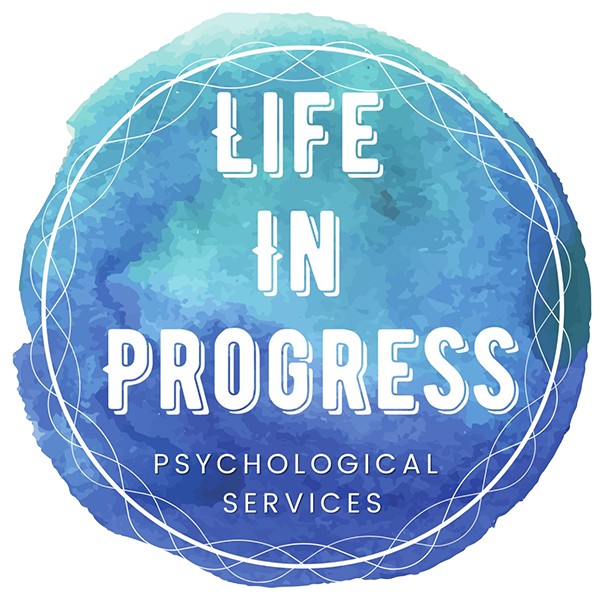Ever feel like you’re faking it ’til you make it? That’s imposter syndrome in action! It’s that nagging voice saying you’re not as awesome as everyone thinks—even when the evidence screams success. This blog dives deep into what imposter syndrome is all about, its mental health impacts, and, most importantly, how you can kick it to the curb!

Unveiling Imposter Syndrome
Imposter syndrome tricks you into believing your accomplishments are flukes or luck, not your skills. Even with proof of your greatness, you feel like a fraud in your own success story.
Specific Connections to Mental Health
Increased Stress and Anxiety: The fear of being discovered as a fraud can lead to constant stress and anxiety, as you struggle to meet perceived expectations and hide perceived inadequacies.
Negative Self-Talk: Imposter syndrome often fuels a harsh inner critic, leading to a constant stream of negative self-talk that erodes self-esteem and self-confidence leading to a negative self-image and a sense of unworthiness.
Undermined Performance: Feeling like an imposter can undermine performance, as you may hesitate to take on new challenges or self-sabotage to avoid failure.
Avoidance of Opportunities: Individuals with imposter syndrome may avoid opportunities for growth and advancement, fearing they won’t be able to meet the demands of new roles.
Anxiety and Depression: Imposter syndrome can lead to chronic stress and anxiety, causing you to feel overwhelmed and emotionally exhausted. This constant strain can also contribute to the development of depression.
Burnout: The drive to continually prove oneself and meet unrealistic standards can lead to burnout, where you experience emotional and physical exhaustion, as well as a reduced sense of accomplishment.
Avoidance Behaviors: People with imposter syndrome may avoid new challenges or opportunities to avoid failure or the exposure of their perceived inadequacies.

Signs You’re in Imposter Mode
Chronic self-doubt and a persistent fear of failure? Chiggity-check.
Difficulty accepting compliments or attributing success to luck or external factors? Guilty.
Anxiety and stress related to upcoming challenges or tasks? Yep.
Comparing yourself to others and feeling inferior or inadequate in comparison? Constantly.
Combatting Imposter Syndrome: 13 Game-Changing Strategies
Validate Your Feels
Imposter syndrome’s a common uninvited guest at life’s party. Acknowledge it, embrace the vulnerability, and know it’s OK to feel this way. Give yourself permission to feel vulnerable and acknowledge that your feelings are valid. Normalizing these feelings can help reduce their impact.
Flip the Script
When self-doubt creeps in and you catch yourself thinking “I’m not good enough,” or “I don’t deserve this,” shut that shit down! Challenge those negative thoughts with receipts (you’ve been on this planet a hot minute so, YES, you absolutely do have receipts) of your victories and skills. You’re a superstar, own it!
Reframe Your Narrative
Shift your focus from self-criticism to self-compassion. Remind yourself that everyone makes mistakes and experiences setbacks. Instead of dwelling on perceived failures, focus on the lessons learned and growth achieved.
Set Bite-Sized Goals
Break big goals into snackable bites (the kind you would find on the ever-popular charcuterie board). Every small win builds confidence. Gradual progress builds confidence and reduce feelings of overwhelm. Celebrate each milestone reached, and remember that progress is a journey, not a destination.
Seek Support
Share your feelings of imposter syndrome with trusted friends, family, or a therapist. Sometimes verbalizing your feelings can help you gain perspective, receive encouragement, and help alleviate the burden of imposter syndrome.
Recognize Success
Embrace positive feedback and compliments from others without downplaying your achievements. Soak up praise like the sun and use it to counter imposter syndrome thoughts.
Stop Comparing Yourself
Avoid comparing yourself to others, as it can fuel feelings of inadequacy. Remember that everyone’s journey is unique, and you are on your own path.
Keep a Journal
Write down your accomplishments, strengths, and glowing reviews you receive. Revisit this journal regularly to remind yourself of your capabilities when self-doubt arises.
Embrace Learning Opportunities
View challenges and new experiences as opportunities for growth. Embrace a growth mindset, where mistakes are seen as chances to learn and improve. View failures as a teacher, not a sentence. Everyone makes mistakes, and they do not define your worth.
TLC Me
Prioritize self-care activities that nurture your physical and emotional well- being. Taking care of yourself helps build resilience and confidence.
Pre-game for your Mind
Imagine yourself succeeding in challenging situations. Visualization can boost your confidence and help you approach situations with a more positive mindset and crush doubts!
Ditch External Validation
Relying solely on external validation can reinforce imposter syndrome. You’re not an approval junkie. Internal pride beats external cheers any day. Own your wins—no validation needed.
Imperfect Action FTW
Embrace imperfection and take action despite the fear of failure. Remember that taking small steps forward is better than staying stuck due to imposter syndrome. Progress > Perfection.

Therapy to the Rescue: Your Exclusive Backstage Pass to Self-Discovery
Identifying Imposter Patterns: I can help you identify your unique imposter syndrome patterns and gain insight into how these patterns manifest in both thoughts and behaviors.
Nixing Negative Thoughts: I can assist clients in challenging and reframing negative thought patterns that contribute to imposter feelings. This process promotes a more balanced and realistic self-perception.
Cultivating Self-Compassion: Therapy helps you cultivate self-compassion and practice self- kindness, encouraging you to embrace your imperfections and treat yourself with greater understanding and patience.
Conquering Failure Fears: I can help you confront your fear of failure and develop healthier coping strategies to manage setbacks and mistakes.
Goals for Realz: Therapists can support clients in setting achievable goals and celebrating their progress, promoting a sense of accomplishment and self-worth.
Learning to Accept Praise: Therapists can guide clients in accepting and internalizing compliments, fostering a more positive self-concept.
Embracing Vulnerability: Therapy offers a safe space for you to explore vulnerability and share your feelings of inadequacy without fear of judgment.
Imposter syndrome is a common yet challenging obstacle that can significantly impact mental health and well-being. The feelings of inadequacy and self-doubt associated with imposter syndrome can lead to anxiety, depression, and burnout, affecting various aspects of one’s life, including personal relationships and career growth. Therapy offers healing and personal growth by helping you recognize and challenge imposter patterns, fostering self-compassion, and developing healthier coping strategies. By understanding its nature and impact on mental health, individuals can take proactive steps to navigate and overcome it. Remember, you are not alone in experiencing imposter syndrome, and with persistence and self-compassion, you can unmask the imposter within and cultivate a healthier and more confident sense of self.
References
-
Clance, P. R., & Imes, S. A. (1978). The imposter phenomenon in high achieving women: Dynamics and therapeutic intervention. Psychotherapy: Theory, Research & Practice, 15(3), 241-247. https://doi.org/10.1037/h0086006
- This article explores the dynamics of imposter phenomenon in high-achieving women and discusses therapeutic interventions.
-
Langford, J., & Clance, P. R. (1993). The imposter phenomenon: Recent research findings regarding dynamics, personality and family patterns and their implications for treatment. Psychotherapy: Theory, Research & Practice, 30(3), 495-501. https://doi.org/10.1037/0033-3204.30.3.495
- This study provides recent research findings on the imposter phenomenon, its dynamics, and implications for treatment.
-
Hutchins, H. M., & Rainbolt, H. (2017). What triggers imposter phenomenon among academic faculty? A critical incident study exploring antecedents, coping, and development opportunities. International Journal of Teaching and Learning in Higher Education, 29(1), 182-195. Retrieved from https://files.eric.ed.gov/fulltext/EJ1137252.pdf
- This critical incident study investigates triggers of imposter phenomenon among academic faculty, exploring antecedents, coping strategies, and development opportunities.
-
Parkman, A., & Posig, M. (2016). A historical exploration of the impostor phenomenon. The Journal of Psychology, 150(2), 187-196. https://doi.org/10.1080/00223980.2015.1067849
- This article provides a historical exploration of the impostor phenomenon, examining its origins and development over time.
-
Sonnak, C., & Towell, T. (2001). The impostor phenomenon in British university students: Relationships between self-esteem, mental health, parental rearing style and socioeconomic status. Personality and Individual Differences, 31(6), 863-874. https://doi.org/10.1016/S0191-8869(00)00185-6
- This study explores the impostor phenomenon among British university students, examining its relationships with self-esteem, mental health, parental rearing styles, and socioeconomic status.
-
Bernard, N. S., Dollinger, S. J., Ramaniah, N. V., & Muralidharan, K. (2002). Effects of organizational climate, work outcome, and self-perceptions on job satisfaction. Psychological Reports, 91(3), 1083-1096. https://doi.org/10.2466/pr0.2002.91.3f.1083
- This research investigates the effects of organizational climate, work outcomes, and self-perceptions on job satisfaction, relevant to understanding workplace contexts related to imposter phenomenon.
-
Ferrari, J. R. (2005). Imposter phenomenon and self-handicapping: Links with parenting styles and self-confidence. Personality and Individual Differences, 38(7), 161-171. https://doi.org/10.1016/j.paid.2004.04.010
- This article explores links between the impostor phenomenon, self-handicapping behaviors, parenting styles, and self-confidence.

